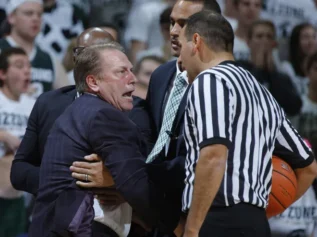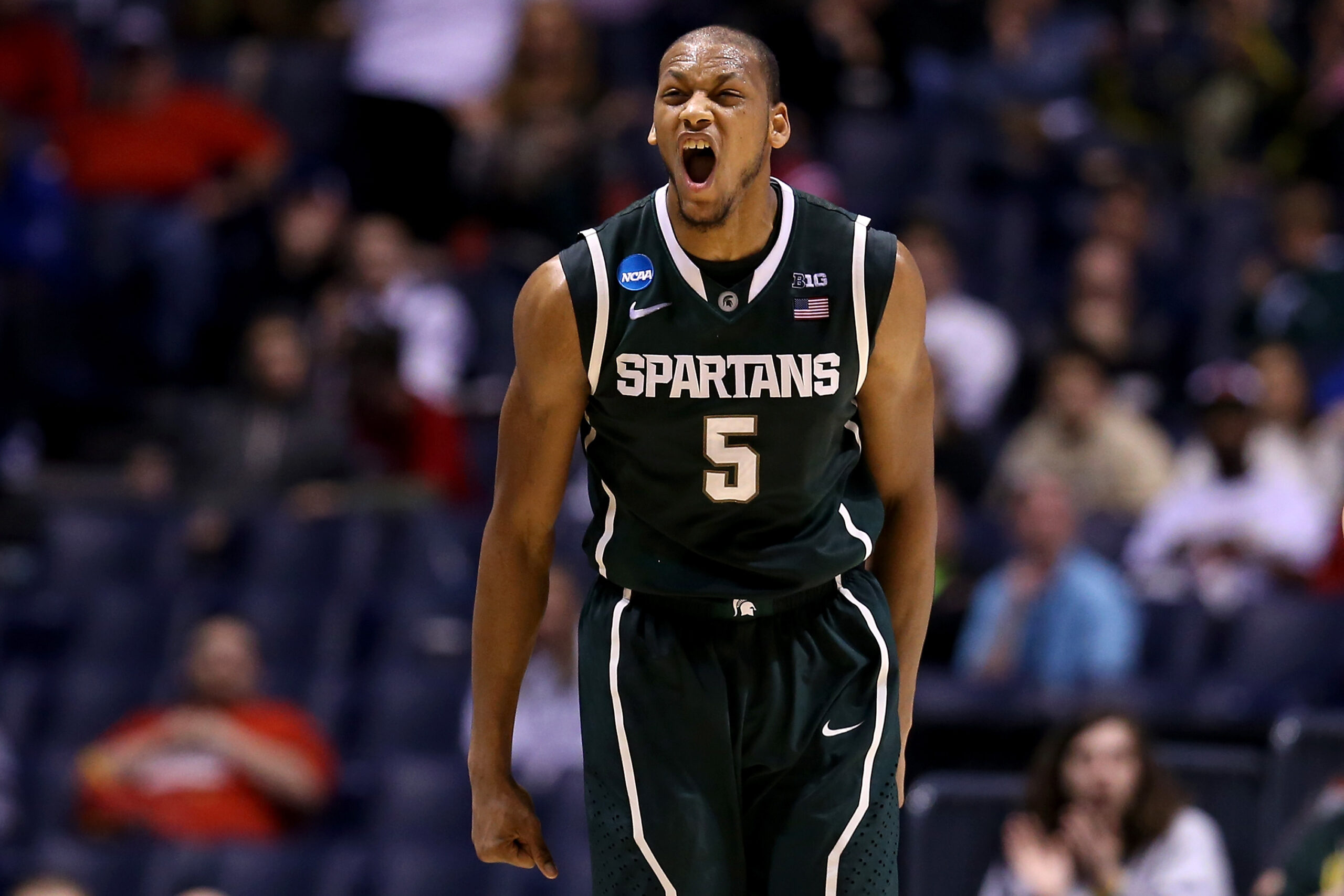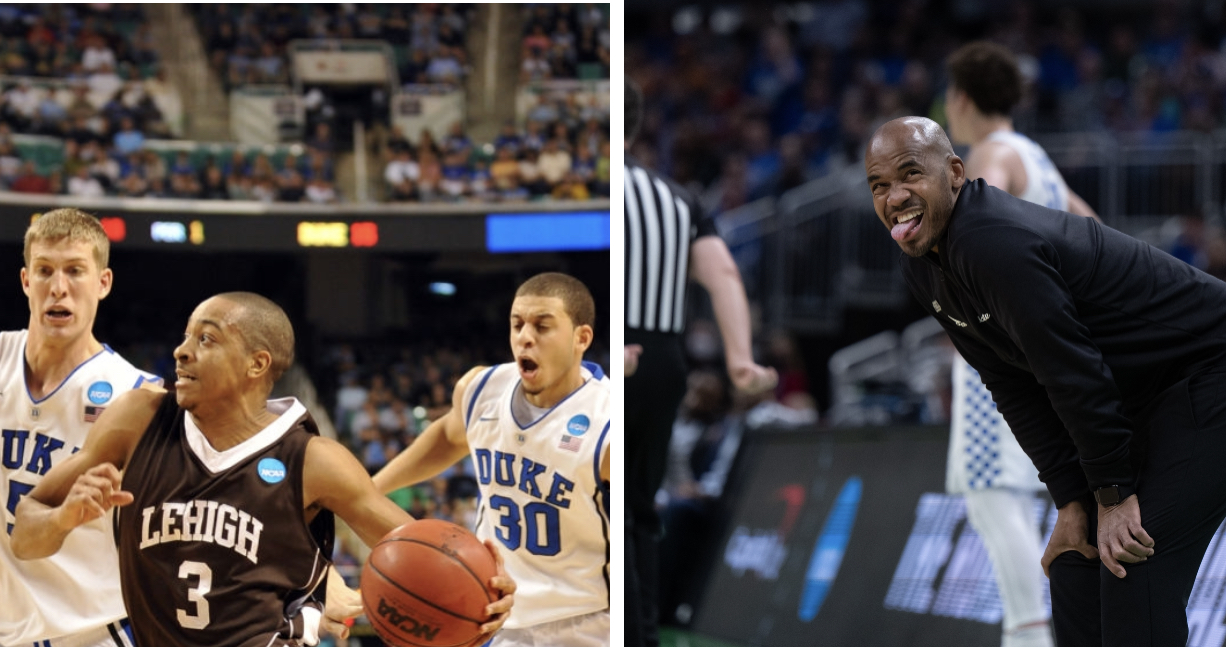For far too long we’ve witnessed and heard of the mental and verbal abuse the Black athlete has endured at the hands of some caucasian head coaches. Let me take you back to the Bobby Knight era in college basketball and how he’d berate his players on the sidelines of Assembly Hall in Bloomington Indiana.
For years that abuse was overlooked and never frowned upon.
During the college basketball explosion of the 70s, 80s and 90s, Knight won three National Titles at Indiana and brought the school money and fame and finances and bolstered enrollment. His bold and brash demeanor was a media attraction and he became a “God” there known as “The General” Robert Montgomery Knight.
His basketball success translated into power and influence within the university and on the national college stage. His tongue was a whiplash, driving his players towards “excellence” and “turning young talented boys into men” with expletives and physical aggression. He head-butted one of his players as he sat on the bench and the school spokesperson called it an accident.
But video suggests his player was angry and it was done on purpose. In 2000 after tons of altercations with his players, coaches, police, hotel staff and students on campus who didn’t show him the level of respect he felt he deserved, Knight was fired by the University.
But he’s just the tip of the iceberg as far as abuse goes towards the black athlete.
Knight’s aggressive style was considered old school and outdated, but we can still find this oppressive culture and racially-jaded dynamic permeating throughout college sports.
How about former Rutgers coach Mike Rice kicking and hurling balls at players as he called them homophobic slurs? He ruled with an iron fist and nobody swung back.
https://youtu.be/Mtf6eWtGWh0
Or former UNC women’s basketball coach Sylvia Hatchell (a beloved and legendary figure on Tobacco Road) who threatened her team that a loss to an opponent could lead to “NOOSES” and she also urged the team to even do a “Tomahawk Chip War Cry.” Many parents got wind of this and the school took action.
Speaking of noose references, Penn State basketball coach Pat Chambers resigned on Oct. 21, following an internal investigation into an appropriate comment he allegedly made to a Black player named Rasir Bolton in January of 2019. Chambers, who had been at the school for nine years, told Bolton during a conversation that he wanted to “Loosen the Noose” around Bolton’s neck.
Chambers claims he meant to say “Yoke” but the verbiage he used showed a clear insensitivity to race and the history of bigotry and oppression that African-Americans have endured in this country.
Verbal abuse is a part of the game we must change.
A 2016 report on Black Male Student-Athletes & Racial Inequalities In NCAA D-1 College Sports showed that Black men comprised 2.5% of undergraduate students, but 56.3% of football teams and 60.8% of men’s basketball teams.
Meanwhile, white men comprised nearly 75 percent of all head coaches according to a 2018 study. Whether coaches acknowledge it or not, the power disparities and inequities that exist between white people and everyone else are on steroids in college basketball.
All athletes, regardless of race, can be subjected to bullying or being racially profiled, but it seems to be a consistent occurrence at the college level where whites dominate leadership positions and seem empowered to often “put Blacks in their place” by berating them rather than uplifting them.
Dozens of former Iowa players have spoken out in recent months about their experiences playing for Kirk Ferentz in Iowa City, many of whom said they were treated unfairly and were unable to be themselves on Ferentz’s teams “because they were Black.“
Many complaints were directed toward strength coach Chris Doyle, too, who was put on administrative leave and later reached a separation agreement with the school.
Ferentz admitted he had a “blind spot” in his program, and that an advisory committee would be formed to help improve the culture within the program. Reports, however, alleged that Ferentz was “briefed on racial issues within his program more than a year before the complaints surfaced.”
The former players sent a list of demands to the university.
- A permanent Black male senior administrator within the athletic department
- Mandatory anti-racist training for staff members
- A board of advisers with Black players and anti-racist professionals to oversee the program and tuition waivers for any Black athlete who didn’t graduate, according to The Des Moines Register.
Iowa president Bruce Harreld, who conveniently announced his plans to retire earlier in the month, responded to the players in a statement and showed very little remorse or understanding for what his Black athletes have endured.
The university rejects the demands for money and personnel changes
Coaches are supposed to be role models.
Meaning they need to be mindful that their vile behavior can intensify the abuse of power dynamics in tedious situations. Seeing a white coach yelling at a player reminds me of all the times that white people have called the police to deescalate a facade of a situation with the assumption the law will be on their side.
It shows the unequal treatment of blacks as it pertains to society as a whole.
How about how when lauded Michigan State head coach Tom Izzo berated his player Aaron Henry in front of a full arena as he walked towards him with his fist clenched, and pointed his finger a few centimeters from his nose.
Izzo had to be restrained by other players and offered not one apology. But what if Henry, who goes 6’6 and 215 pounds, just hauled off and popped his head coach? He’d be kicked off the team, as well out of the University, and probably arrested and jailed for assault.
In interviews following the events, Izzo chalked it up to “Tough Love”.
That wasn’t “Tough Love.”
It was about the intimidation and bullying that’s become the norm with so many white coaches towards the black athlete. Racism endures primarily through silent acceptance and complicity.
I remember seeing Scott Van Pelt, someone I respect, even denounce it as nothing more than “Tough Love” and “Accountability”. Even used Izzo’s track record of being a great coach as an excuse for his disgusting act of bullying and intimidation.
As a privileged white man, he’s overlooking a belligerent white coach with utmost power embarrassing a young black athlete on national television. Not saying he doesn’t yell at all his athletes, but the lack of attention given to incidents of this nature shows just how accepting we are as a society of the unequal status quo that resonates.
At Wichita State head coach Gregg Marshall is in the same sort of crosshairs with the alleged treatment of his players past and present. To the point where 7 total players entered the transfer portal during the 2019-20 season.
Marshall said it was him having to learn and adapt and continue to understand the process. What process? Of you berating, bullying and intimidating players to the point they leave the program? The overall unhealthiness of the program is why they left.
Intimidation Tactics Forces Complicit Silence.
The players and parents not saying anything doesn’t make this right at all, but the power these coaches have over players’ lives is extraordinary. In the past, players were scared to speak out against omnipotent coaches in fear of losing their scholarship and future opportunities. They would often be labeled as malcontents and selfish players by the predominantly-white media.
As it pertains to team sports, loyalty is often confused with succumbing to abuse and force. No different than an abusive relationship where the victims profess their love and loyalty to their abuser. In no way, shape or form should abuse of power ever be synonymous with winning or the development of young student-athletes.
#PoVMasonSports



